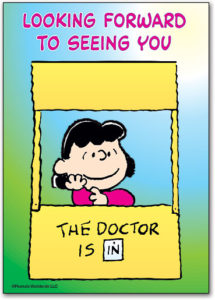
In general, we long to resume the in-person habits and routines we often took for granted: the extended visit to the bookstore to peruse magazines; the biweekly date night; the casual trip to a retail store to refresh to window shop or survey the inventory; or the impromptu movie and post-show meal a friend or three.
Behind the anxiety to “reopen” the economy is the need to define and resume the new “normal.” But those habits and routines that we long to resume–both within and outside of the workplace–are the same ones which have come undone during this stay-at-home period. We have adapted to not doing them and finding acceptable replacements. Sure, we will splurge for nostalgia when shops, venues, and workplaces reopen en masse, but this is certain: the experience will not be the same. So why return to normal?
Why not stay the current course and embrace our new habits and routines? Perhaps the time is right to reimagine the old way of doing things. Yes, the costs will be different, but the returns may be far improved. Consider the following:
- Efficiency and engagement gains through expanded work from home arrangements and more flexible work arrangements, in general;
- Reduced travel costs associated with trips and transactions that can be done remotely; and
- Renewed focus on instructional design and delivery at the elementary, secondary, and university levels.
Undoubtedly there are flip-side costs associated with all of the above, including lower levels of socialization and personal interaction and less physical activity. But embracing new habits and routines does not mean abandoning the best of the “old ways.”
The future beckons us to blend the best of the new and the old. Such is the essence of growth and development. It requires being open to new ideas, challenging the usual ways and means, and remaining flexible and resilient during change. If the new “normal” means a renewed seriousness about pursuing these and other required traits for success, I definitely don’t want to go back. What about you?


